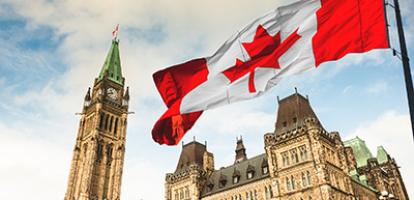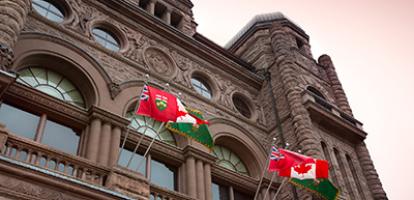The established order of things in international trade, the world we have been comfortable with for decades, has been shattered. This is often laid at Donald Trump’s door, given his disdain for the World Trade Organization (WTO) and relish for unilateral actions like tariff surcharges. In reality, the global trading system was in trouble before Trump’s arrival on the scene. He and Robert Lighthizer, his spear-carrier as U.S. Trade Representative, have just been the instruments of disruption, bringing all of the inadequacies and shortcomings of the WTO system to the forefront.
Before Trump was elected, I believed that, whatever its shortcomings, the key legal principles and multilaterally respected norms governing the global trading system in the WTO Agreement would endure. These generally accepted rules, forsaking unilateral measures by governments, would continue to advance global trade and provide stability that business could count on. Or so I thought. But the Trump presidency has upset my predictions. Even if the Trump era were to end next week, a restoration of the old order and its orthodoxy seems highly unlikely.
Even before the ill-fated Doha Round trade negotiations (2001-2008) ground to an ignominious halt, the deficiencies of the WTO system were apparent. Requiring unanimity among member governments may have made sense decades ago, but with a current roster of 160 countries — as opposed to 23 when the General Agreement on Tariffs and Trade (GATT), the forerunner of the WTO, was negotiated in 1947 — achieving consensus in trade talks has become all but impossible. Permanent gridlock is obviously a potentially fatal impediment to the WTO continuing as a global negotiating forum.
Together with this institutional breakdown, there has been a sharp increase in the protectionism that we once all thought had been replaced by open-market orthodoxy and an orderly and effective system of dispute resolution. Trump’s weaponization of tariffs is the most obvious example of the rise in protectionism but, even though the Trump White House has drawn much opprobrium, and rightly so, the source of the problem runs deeper.
As successor to the GATT, the WTO Agreement of 1995 resulted from the Uruguay Round talks that started 35 years ago, in a long-ago world totally different from today’s digital age. There is no mention anywhere in the agreement of digital trade or e-commerce. Its only mention of the environment is an oddly worded, antiquated set of GATT provisions widely regarded as inadequate to deal with the challenge of climate change and its effect on trade.
Another shortcoming, much commented on these days, are the GATT/WTO rules on national treatment and most-favoured-nation (MFN) treatment, which prevent differences in tax treatment of imported goods that are alike in all attributes to domestic goods except for having been made through environmentally harmful production processes. There is now a huge academic literature on this subject but the WTO Agreement itself is ambiguous on whether border adjustment measures (“BAMs”) such as import taxes are permitted to level the playing field and prevent “carbon leakage,” in which production moves to countries with lax environmental regimes. BAMs would eliminate any cost advantages accruing to these foreign-made goods.
The general problem is that many time-honoured rules originally drafted in 1947 are simply not up to the task in a world that is so much changed. These shortcomings have been increasingly recognized by more committed WTO members. Canada has taken a leading role gathering some of these like-minded countries together in the “Ottawa Group,” which seeks a road to pragmatic WTO reform — in the belief the agreement must be updated or face the possibility of tumbling into 21st-century irrelevance. The challenge is finding a way around sclerotic WTO decision-making to a place were more limited plurilateral arrangements — agreements among willing subsets of the WTO membership — can be achieved.
With the old order in disarray, transcendent rules shattered and formidable institutional roadblocks at every turn, the question is how to achieve this. Needless to say, Trump’s re-election probably would not help. For that matter, whether transcendent rules of any kind can endure in this kind of a world is an open question. It is unrealistic to think there will be a brave new world under Joe Biden, but there would at least be the likelihood of renewed American leadership in dealing with some of these deeply worrying challenges.
Published in the Financial Post
Lawrence Herman, a former Canadian diplomat, is counsel at Herman & Associates and a senior fellow of the C.D. Howe Institute in Toronto.





